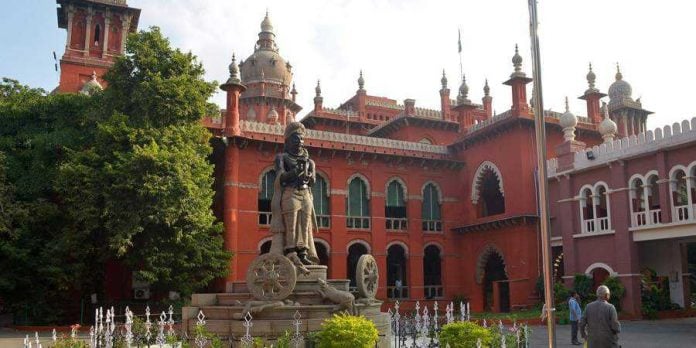Abhinav Verma
The Madras High Court has issued a set of 75 directions for the preservation and maintenance of historical monuments and cited Albert Camus as “Without culture, and the relative freedom it implies, society, even when perfect, is but a jungle. This is why any authentic creation is a gift to the future.”
A division bench comprising Justices R. Mahadevan and P.D. Audikesavalu in the prologue of the 224-page order has observed that “Heritage and cultural assets are going into oblivion now-a-days. The upcoming generation does not know about the value of the same. That apart, the custodians of grand and antique temples and ancient monuments are least bothered and the conservation of our valuable heritage is deteriorating not due to any natural calamity or catastrophe, but due to reckless administration.”
The bench said, “The younger generation hyping upon science and technological development needs to understand that many things claimed to be discovered and equated with scientific objective were said and laid down here before centuries in spiritual sphere.”
“The intelligence, knowledge and skill of the people of this land have been far superior and precocious even in fields that science is yet to find answers. In proof, not only have the primogenitors of this land left behind theories beyond human comprehension, but also astonishing and illuminating monuments and scriptures“, it added.
On January 6, 2015, the bench headed by Chief Justice Sanjay Kishan Kaul, as he then was, initiated a suo motu proceedings, based on the newspaper report published in “The Hindu” on January 4, 2015, titled “Silent Burial”, relating to the inaction on the part of the Government in establishing the statutory authority, framing rules and constituting a 17-member Heritage Commission to advise them on heritage issues despite the fact that the state legislature passed a bill in this regard and it had received the assent of the Governor for the same.
“Our constitution, understanding the importance of long standing history and civilization, has thrust upon the state, a duty to protect, safeguard and nourish the rich culture, tradition and heritage of this land and When the state fails in its duty, the courts have to step in.” the judgment said.
Citing above reason, the bench passed a slew of directions as follows:
- – The state should constitute a 17-member heritage commission within two months, and declared that no structural alteration or repair of any monument, temple, idol, sculpture or murals notified either under the Central Act or the State Act should take place without the sanction of the commission.
- -To ensure safety of idols including strong rooms in every temple with video surveillance and computerised data of all idols including their photographs.
- -The funds of the temples shall first be utilized for the maintenance of temples, conducting temple festivals, payment to its staff including the archakas, oduvars, musicians, folklore and drama artiste. In case of surplus funds, the same shall be utilized for attending the repair and maintenance of other temples in the state.
- -The ASI shall conduct state wide field survey of antique temples of more than 100 years old and estimate the damage and restore the structure according to its conservation rules to its former glory within a period of six (6) to twelve (12) months.
- -The ASI shall inspect and declare all the temples which are more than 100 years old, even if a single idol in a temple, as a monument according to the Directive Principles of State Policy.
- -The CAG audit shall be done with ASI expertise to assess the damage structurally and evaluate the value of the antique destroyed. Further, the compliance audit, financial audit and performance audit shall also be done every year for managing huge wealthy resources of the temples.
- -The Central Government shall implement the Ancient Monuments Act in letter and spirit, by declaring all religious structures more than 100 years old including temples, temples’ tanks, mutts, temple chariots, jewels, art, artefacts, and sacred groves etc., including private denomination temples, as ‘national monuments’ with immediate effect.
Read Also: Madras HC takes suo motu cognizance of paddy damage due to lack of storage facilities
The bench highlighted, “The history reveals that many temples have been built by the Kings with great vision. However, the authorities have not endeavoured to protect the same. As a result, many idols have been stolen and smuggled out of the country and the temples with architectural excellence and historical importance have also been left to become dilapidated. If the proper system is adopted to screen the objects, the smuggling of the Idols out of the country cannot take place. The Idols cannot be smuggled, unless there is a mis-declaration, which will warrant action by the DRI and Customs authorities against the Exporter, CHA, etc. This Court has not come across with details related to a single case, where the person involved in smuggling the Idols out of the country, has been independently prosecuted under the Customs Act, 1962 and the Finance Act, 1994 as the act would be per se constitute an independent offence under these Acts.”


